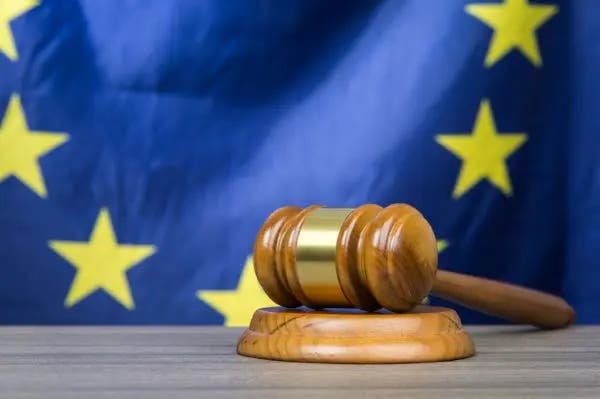Reject US pressure to weaken digital laws says Teresa Ribera

Image:
EU antitrust chief urges Brussels to stand firm against Trump’s Big Tech threats
The EU must be prepared to abandon its newly struck trade deal with the United States if President Donald Trump follows through on threats to punish the bloc over its digital legislation, the EU’s competition chief has warned.
Teresa Ribera, the European Commission’s Executive Vice-President, urged the EU to show “courage” against Washington’s pressure, cautioning against the “temptation of being subordinated to others’ interests.”
Speaking to the Financial Times, Ribera said Brussels had acted “nice, polite,” and sought to build trust with the US in finalising the trade deal concluded late last month.
Yet she warned the bloc could not accept coercion aimed at watering down its key digital legislation – the Digital Services Act (DSA) and Digital Markets Act (DMA).
“We cannot accept whatever they demand. We cannot be subject to the will of a third country,” Ribera said.
Ursula von der Leyen, President of the European Commission, had hailed the July trade deal struck with Trump’s administration in Scotland for bringing “stability and predictability” to transatlantic relations.
However, within days of the trade agreement’s disclosure, Trump threatened tariffs and export controls targeting countries whose digital taxes or rules he deemed discriminatory against US interests.
Ribera, ranking second only to von der Leyen in Commission hierarchy, asserted the EU’s sovereign right to regulate its digital economy and defended the bloc’s insistence on maintaining its robust regulatory framework.
“This is quite an obvious thing that we will defend,” Ribera stressed.
The tension coincides with increased EU scrutiny of American tech giants such as Elon Musk’s X, Apple and Meta, as Brussels moves forward with several investigations into their market conduct under its digital laws.
Ribera was categorical that these probes would not be hindered by Trump’s coercive rhetoric.
On Thursday, the EU took steps to implement aspects of the trade deal, lowering tariffs on selected US industrial products and automobiles. However, the final nod from member states and the European Parliament remains pending.
FTC escalates opposition to Europe’s digital policies
Across the Atlantic, trouble for the EU’s DSA is escalating. On 21st August, Andrew Ferguson, chairman of the US Federal Trade Commission (FTC), sent a letter to major tech firms, including Google, Meta and Apple, warning them not to implement the EU’s digital law if it threatens Americans’ freedoms or safety.
Invoking the First Amendment protecting free speech, the letter criticised “pervasive online censorship” alleged under previous administrations and expressed concern that the DSA and related European laws threaten American users by imposing censorship, weakening end-to-end encryption, and infringing on privacy rights.
Ferguson demanded that the 13 companies detail how they plan to comply without violating US laws, particularly Section 5 of the Federal Trade Commission Act, which prohibits unfair or deceptive practices that could distort the market or harm safety.
The letter emphasised that companies falsely claiming to provide secure services but failing to implement end-to-end encryption “may deceive consumers.”
Moreover, weakening encryption to comply with foreign regulators could constitute an unfair practice subject to FTC enforcement.
“If companies censor Americans or weaken privacy and communications security at the request of a foreign power, I will not hesitate to enforce the law,” Ferguson stated in a tweet on X.
Guido Scorza, member of the Italian Data Protection Authority, noted that overlapping legal systems, such as conflicts between European privacy laws and US regulations like the Cloud Act, are inevitable in today’s interconnected world.
He added that diplomatic efforts between the US government and the European Commission are important to find solutions that preserve each party’s digital sovereignty.

